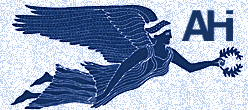 |
|
|
|
|
 |
AHI Responds to Helle Dale
Washington Times Prints Rebuttal |
|
Washington, DC- On October 12, 2005, The Washington Times published AHI Executive Director Nick Larigakis’ letter to the editor, on page A20, responding to Helle Dale’s article “At the crossroads.” The text of the letter appears below, followed by The Washington Times article to which the letter responds. October 5, 2005 Letters to the Editor The Washington Times 3600 New York Avenue, N.W. Washington, D.C. 20002 Dear Editor: Helle Dale's Oct. 5 Op-Ed column, "At the crossroads," is another example of attempting to invoke the "Christian vs. Muslim" element as it relates to Turkey's accession into the European Union. Although I'm sure there are many, on both sides, who would like to use this argument, the simple truth is that there are basic fundamental prerequisites for gaining membership into the union. Turkey falls short in many. Isn't Turkey occupying Cyprus? Isn't Turkey refusing to recognize Cyprus, an EU member state? Isn't Turkey violating its neighbor's borders in the Aegean? Isn't Turkey restricting religious freedom of minorities in Turkey? Doesn't the military establishment heavily influence the Turkish government? Does the Turkish economy meet the EU criteria? The writer says that "each time the desired goal [of Turkey becoming an EU member] has seemed to be within reach, a new obstacle has sprung up..." Why is this? Frankly, this is the question that needs to be addressed. Some of the reasons are mentioned above. Regarding U.S. interests, no one is advocating dismissing Turkey. However, you can't have one set of standards for Turkey and another for U.S. allies in the region. The argument of Turkey's strategic importance has been diminished greatly since the Cold War, as proved by its actions in the war in Iraq. Even buying into the argument that Turkey is important, the only way U.S. interests would be served would be if Turkey lent itself in this capacity. Its well-documented historical record proves otherwise. Finally, in the interest of regional stability and dispute resolution, the United States should promote Turkey's emergence as a fully democratic state able to complete the EU accession process and participate fully in the economic opportunities presented by the regional climate. The process, however, will require fundamental changes in Turkey's governmental institutions, a significant improvement in its human rights record, religious freedom record, the settlement of the Cyprus problem and its acknowledgment of the borders in the Aegean Sea established by treaties. When U.S. policy focuses on these issues and Turkey finally complies, then and only then will U.S. interests, Turkey's interests and European interests be better served. Sincerely, Nick Larigakis Executive Director American Hellenic Institute The Washington Times AT THE CROSSROADS By Helle Dale ----------------------------------------------------------- Turkey used to be a dreaded invader of Europe, but these days it is more like a patient suitor. For 43 years, since signing an association agreement, Turkey has been waiting to become a full-fledged member of the Europe Union. But each time the desired goal has seemed to be within reach, a new obstacle has sprung up along the way. |
|
For more information about the American Hellenic Institute in Washington, D.C., contact Georgia Economou, Director of Public Relations for AHI, at (202) 785-8430 or at georgia@ahiworld.org, or visit the groups' website at http://www.ahiworld.org. AHI was founded in 1974 following Turkey's illegal invasion and occupation of 37.3% of Cyprus. It is a membership-based organization with members throughout the nation. AHI's core mission is to promote American values and the rule of law in U.S. foreign policy and to strengthen relations between the U.S. and Greece and Cyprus as being in the best interests of the United States. It conducts an active program with Congress in espousing and supporting legislation designed to promote American interests in Southeast Europe and the Eastern Mediterranean and is registered with the Congress under the Lobbying Act. The AHI Foundation is the first think-tank devoted exclusively to the study of the issues confronting the Greek American community. This organization sponsors conferences, seminars and publishes books and other materials on the issues. HCS maintains an extensive archives for AHI articles and press releases which visitors may browse under the American Hellenic Institute Releases section of the archives at http://www.helleniccomserve.com/contents.html. |
|
 |
|
|
2000 © Hellenic Communication Service, L.L.C. All Rights Reserved. http://www.HellenicComServe.com |
|